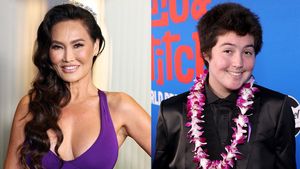A federal judge has dismissed a lawsuit that Disney brought against Florida Gov. Ron DeSantis and other state officials over control of the land surrounding Walt Disney World.
The lawsuit, filed last year, alleged that the state’s takeover of a special governing district for the Disney property was unlawful retaliation for the company’s opposition to Florida’s notorious “don’t say gay” law, banning instruction on sexual orientation and gender identity in public schools. The state’s action violated the company’s free speech rights under the First Amendment, Disney claimed.
But Disney hasn’t shown it suffered any harm because of the state’s takeover, U.S. District Judge Allen Winsor wrote in dismissing the suit Wednesday. Therefore it lacks legal standing to sue the governor and others, he said. Also, since there are other landowners within the district, Disney hasn’t shown it was singled out by the state, he added. Winsor, appointed by Donald Trump, had previously dismissed suits against the “don’t say gay” law itself.
Since 1967, Disney had a special tax district, known as the Reedy Creek Improvement District, that includes Disney World, near Orlando. The company appointed a board to oversee the district, which gave Disney much control over police and fire services, road maintenance, development, and more.
Last February, state legislators dissolved Reedy Creek and empowered DeSantis to appoint a board to oversee a renamed district — Central Florida Tourism Oversight District. The company-appointed board had just approved a plan for Disney to build more theme parks and thousands of new hotel rooms in the district, while limiting some uses of nearby land. The new DeSantis-approved board nullified this approval, and Disney sued in April in U.S. District Court for the Northern District of Florida.
“A targeted campaign of government retaliation — orchestrated at every step by Governor DeSantis as punishment for Disney’s protected speech — now threatens Disney’s business operations, jeopardizes its economic future in the region, and violates its constitutional rights,” the suit said.
The suit named as defendants DeSantis; members of the oversight board and its administrator, John Classe; and Meredith Ivey, acting secretary of the Florida Department of Economic Opportunity.
But Disney “has not alleged any specific actions the new board took (or will take) because of the governor’s alleged control,” and the company “has not alleged any specific injury from any board action,” Winsor wrote.
“Its alleged injury … is its operating under a board it cannot control. That injury would exist whether or not the governor controlled the board,” he continued.
“And it has not alleged facts showing that any imminent future appointments will contribute to its harm,” he added. “The analysis could be different if the Governor had not yet made any appointments. But as things stand, if this court enjoined future appointments, Disney would face the same situation it faces now: it would be operating under the CFTOD board, over which it has no control.”
Disney issued a statement to national media suggesting it will appeal. “This is an important case with serious implications for the rule of law, and it will not end here,” the statement said. “If left unchallenged, this would set a dangerous precedent and give license to states to weaponize their official powers to punish the expression of political viewpoints they disagree with. We are determined to press forward with our case.”
DeSantis’s press secretary, Jeremy Redfern, gave this statement to CNN: “The days of Disney controlling its own government and being placed above the law are long gone. The federal court’s decision made it clear that Governor DeSantis was correct: Disney is still just one of many corporations in the state, and they do not have a right to their own special government. In short — as long predicted, case dismissed.”
During his campaign for the Republican presidential nomination, which he has now ended, DeSantis often boasted of standing up to Disney and what he considers its “woke” agenda, including its support for the LGBTQ+ community. He even accused Disney of encouraging children to change their gender. Meanwhile, some LGBTQ+ Disney employees and their allies said the company’s criticism of the “don’t say gay” law came too late to make a difference.
In addition to the federal suit, there are competing suits filed by Disney and the district oversight board in a state-level court over control of the district and the issue of retaliation. Those will continue, unaffected by Winsor’s dismissal of the federal suit.
The members of the district oversight board include DeSantis allies such as Bridget Ziegler, a cofounder of Moms for Liberty and wife of Christian Ziegler, who was recently removed as chairman of the Florida Republican Party after being accused of rape by a woman with whom the Zieglers had been having a three-way sexual relationship. Law enforcement authorities have announced that Christian Ziegler, who said he had only consensual sex with the woman, won’t be charged with rape, as he submitted video that contradicted her account, but he could face other charges, like video voyeurism.
Pictured: Gov. Ron DeSantis and Disney World















































































